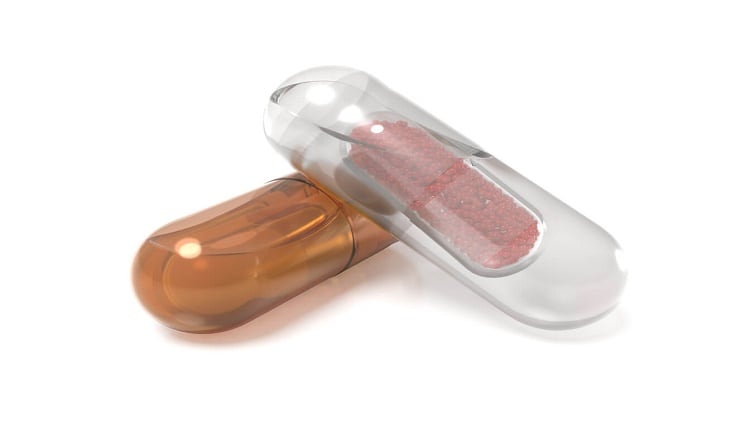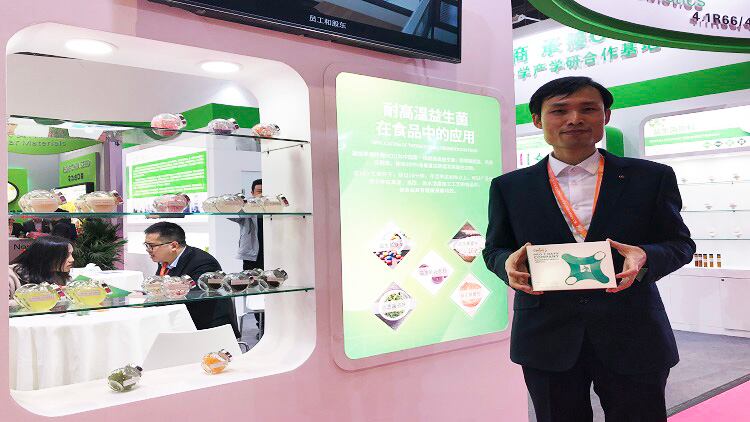The technology involves the use of a micron-sized capsule that is pH-stable and able to store and protect lactoferrin from stomach enzymes. The capsule can only be broken down by the intestinal enzymes, chymotrypsin and trypsin.
Clinical trials conducted showed that the bioavailability of lactoferrin delivered via this technology was seven times higher than standard lactoferrin. As the capsule is made with food-grade material, encapsulated lactoferrin could also used in food fortification.
In an exclusive interview, NutraIngredients-Asia spoke to senior scientists Dr Maxim Kiryukhin and Dr Maria Antipina from the Institute of Materials Research and Engineering (IMRE) at A*STAR to find out more.
Lactoferrin is believed to be involved in enhancing the immune and gastrointestinal system. However, there is an issue of low bioavailability in adults due to a matured digestive system.
“The rate of bioavailability is quite low in adults because our digestive system is developed and it is difficult for adults to get benefits from lactoferrin because it gets degraded in the stomach.
“In this case, it can still be used as a fuel for our body, but it wouldn’t have any benefits to our immune system,” Dr Antipina said.
To deliver lactoferrin to the intestines, Dr Kiryukhin explained that they had developed a capsule to “protect active ingredients from digestion in the stomach and then deliver it to small intestines where the capsule shells are degraded by the action of the intestinal enzymes.”
The capsule shells consist of complexes formed by polyphenols and protein. Active ingredients, in this case, lactoferrin, can then be loaded into the shell.
“We are trying to learn from Mother Nature. Polyphenols form complexes with proteins which are less digestible in stomach, and so we can make a capsule shell with these complexes and put active ingredients inside for delivery in the intestines,” he said.
The shell will only be cleaved and broken down by intestinal enzymes chymotrypsin and trypsin, Dr Antipina added.
“The enzymatic content of the human digestive system is not homogeneous. Stomach enzymes are different from intestinal enzymes, and so if we form capsules out of components which are not digestible by stomach enzymes, it would help to bypass the stomach and deliver active ingredients to the small intestines,” she explained.
She added that the shell was pH stable as compared to enteric coating, with the ability to withstand the pH range of 1 to 12.
Since the micron-size capsule is tiny, ranging about 20 to 50nm in thickness, Dr Kiryukhin added that the capsules containing lactoferrin could be fortified into food without interfering with the taste and structure of the food.
Clinical trials
A number of clinical studies have been conducted to validate the effectiveness of the encapsulation technology.
A trial involving an in-vitro digestive system had shown that the encapsulation technique was able to achieve a lactoferrin bioavailability rate of 90%.
“Depending on the thickness of the shell, up to 90% of the encapsulated lactoferrin are protected from gastric digestion,” Dr Kiryukhin added.
In another animal study, it was found that the bioavailability of lactoferrin was about seven times higher in the small intestines for encapsulated lactoferrin than free lactoferrin.
Also, encapsulated lactoferrin was detected in the blood stream of the test subjects while no lactoferrin could be detected in subjects that took free lactoferrin.
Scaling up
The 2.5 years long project started in 2014 and a patent for the encapsulation technology was filed in 2016.
At present, they are working with New Zealand institute – AG Research in scaling up the use of the technology before moving on to commercial use.
This process is expected to be completed by the end of November this year.
Dr Kiryukhin also revealed that both MNCs and local SMEs have expressed interest in the technology.
“We have built up the whole supply chain, so we have the suppliers of lactoferrin, our future customers who would like to try and test our products, also there are companies interested in licensing our technology for production after the scaling up process,” Dr Antipina added.
Besides lactoferrin, the researchers also intend to apply the technology on other functional ingredients, such as probiotics and prebiotics.
Source 1: Journal of Colloid and Interface Science
DOI: 10.1016/j.jcis.2017.06.001
Protein-tannic acid multilayer films: a multifunctional material for microencapsulation of food-derived bioactives
Authors: H.H. Lau, et al
Source 2: Scientific Reports
DOI: 10.1038/srep44159
Formulation for Oral Delivery of Lactoferrin Based on Bovine Serum Albumin and Tannic Acid Multilayer Microcapsules
Authors: Kilic, E., et al





